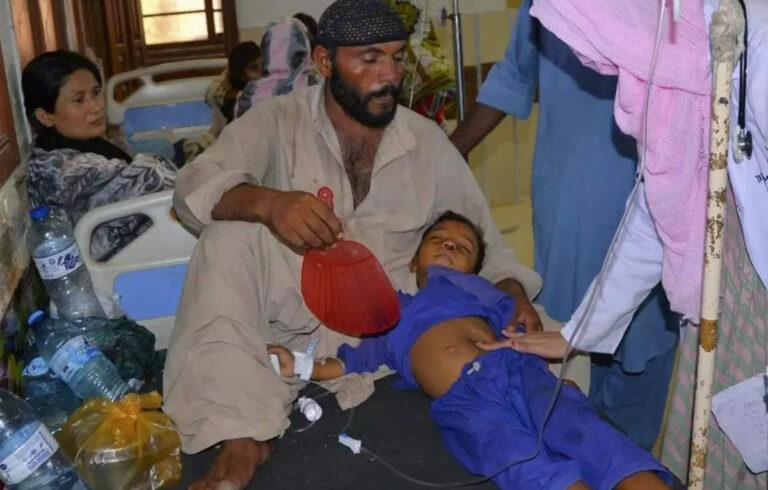ISLAMABAD: Developing resilient energy systems to power health facilities in Pakistan could avert more than 175,000 deaths by 2030, according to a new study by the United Nations Children’s Fund (UNICEF). UNICEF said improving energy resilience could reduce maternal, adult and infant mortality rates and contribute US$296 million to the country’s fragile economy over the next 20 years. The study, conducted by UNICEF’s Economist Impact Unit and released on Friday, comes as Pakistan is hit by a severe heatwave that has sickened thousands and put further strain on the country’s health system.
Temperatures across Pakistan rose to as high as 49 degrees Celsius on Friday, with authorities urging people to stay indoors, stay hydrated and avoid unnecessary travel.
Continued below
Rising temperatures are causing a surge in electricity demand, putting strain on existing power sources.
UNICEF said resilient energy refers to reliable, flexible, accessible and quality electricity supply that can withstand and recover quickly from unexpected shocks such as power outages and floods.
A more resilient energy supply to schools could reduce dropout rates, improve children’s learning and increase their future earnings, it said.
“Children depend on schools, health centres and safe drinking water to survive, but these facilities often lack the electricity to function optimally. The current extreme heat across the country has led to a surge in demand for electricity and shortages that could put children’s health at risk,” said Abdullah Fadil, UNICEF Pakistan Representative.
UNICEF said 3.5 billion people around the world live without reliable electricity.
The report noted that climate change is contributing to disruptions in energy production and distribution in Pakistan, where 1,739 people died in floods caused by climate-driven monsoon rains in 2022. Nearly half of the country’s water infrastructure, including storage tanks, wells and supply lines, was damaged by flooding.
This year, Pakistan recorded its wettest April since 1961, with more than double the normal amount of rainfall. Heavy rains last month killed many people and destroyed homes and farmland.
Daytime temperatures in May were 8 F (14 C) higher than the average for that month over the past 20 years, raising concerns about flooding in the Northwest due to melting glaciers.
UNICEF said it helped restore water systems for 350,000 people in 375 locations after the 2022 floods, as well as implementing several solar-powered initiatives in Pakistan.
“Pakistan is rich in renewable resources and by investing in them, we are tapping into a gold mine to help children,” Fadil said. “Public funds alone will not be enough, so the private sector needs to play a bigger role. This is everyone’s challenge.”
The most read articles in the industry
Join a community of over 2 million industry professionals
Subscribe to our newsletter for the latest insights and analysis.
Download the ETHealthworld App
- Get real-time updates
- Save your favorite articles

